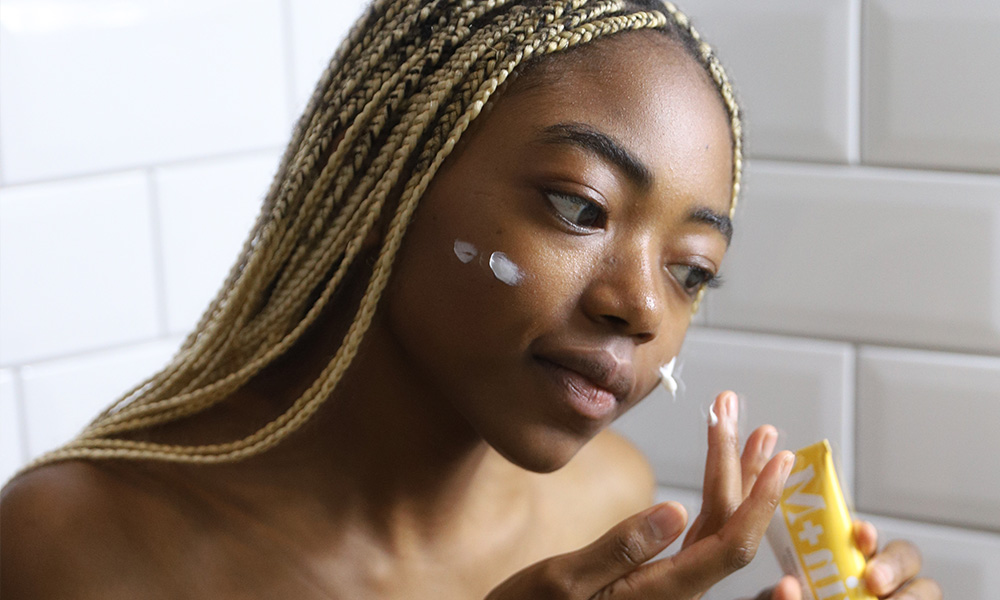Ask A Dermatologist: Which Skincare Products Should Teenagers Use?

Link to share article here:
Ask A Dermatologist: Am I Having A Reaction To My Skincare?
It’s a skincare fact that people may react differently to topical creams and active ingredients – be that irritation from an off-the-shelf ‘anti ageing’ moisturiser, a redness-inducing vitamin C serum or even an intolerance to basic formulations of SPF.
You can rest assured that every off-the-shelf skincare product needs to pass high levels of cosmetic product safety regulation. Prescription skincare products (such as the custom-made formulation in your Daily Doser) undergo even more rigorous testing standards. Despite this, the industry can’t advise with certainty how your skin specifically will tolerate every ingredient introduced into your routine.
Everyone’s skin is different
The best advice is to get to know your skin. Understand your skin type – whether it’s dry, oily, combination, balanced and/or sensitive. Take things slowly with new ingredients. The labels ‘hypoallergenic’, ‘dermatologist-tested’, ‘clean’, ‘natural’ or ‘non-irritating’ are not a guarantee that certain skin conditions won’t flare or your skin won’t react when you use it.
Be mindful of how your skin looks and feels when it’s ‘happy’. Double-check ingredients lists and active ingredients that you use, in time you’ll become more intuitive about what works for you and what to avoid.
Assessing the scale of your reaction
The term ‘reaction’ can cover everything from a mild tingling sensation when applying a cream to the more severe end of allergy with bright red, swollen inflamed skin.
It can help to think of reactions to skincare products as a sliding scale – one (at the lesser end) are reaction symptoms such as dryness, possible redness, peeling, or purging. As your skin adjusts to powerful active ingredients and retinoids like tretinoin – this is quite a normal initial response. It’s also the reason why Skin + Me carefully titrate the dose of irritating actives up to allow your skin to build tolerance slowly.
The term ‘reaction’ can cover everything from a mild tingling sensation when applying a cream to the more severe end of allergy with bright red, swollen inflamed skin.
A lot of progress stories when someone starts on an active treatment plan suggest that skin can become temporarily worse before it becomes better. This is often the case in acne-prone skin. By definition, this may be purging and shouldn’t last longer than the first six weeks of active ingredient use.
Purging to be clear, isn’t an irritant or allergic reaction. Purging is when you experience a breakout of spots or a worsening of existing acne in the first few weeks when your skin is adjusting to new prescription skin treatment, and cell turnover increases as a result. This can happen with any acne or skin ageing treatment that contains prescription-strength or over the counteractive ingredients.
Although purging can be frustrating, don’t panic – this is a normal process your skin goes through in the journey to clearing your skin and it is only temporary.
How to know if you’re suffering more than ingredient tolerance-building symptoms or basic purging? Put it this way, skincare products shouldn’t feel like they’re ‘burning’ to be working.
If you suffer burning, stinging or an itchy red rash when you apply your skincare, your dermatologist may identify that as ‘irritant contact dermatitis.’ This is often an immediate reaction on applying the creams and is common with many irritating ingredients.
Symptoms at the higher end of the irritation-reaction scale
At the higher end of the spectrum, a true allergy to a specific ingredient can lead to highly irritating redness, swelling, itching, hives or blisters on the skin. Fortunately, this type of allergy (allergic contact dermatitis) is rare and common culprits tend to be certain fragrances or preservatives used in skincare. This type of allergy is diagnosed through specific allergy tests performed by dermatologists.
What to do if you’re having an allergic reaction
If you feel like you’re having a reaction as you use a product, stop using it and rinse immediately with water. A cold compress can help take out the heat and stop you from itching the skin – it’s important to try and protect your skin barrier so it doesn’t become susceptible to further irritation.
N.B Having an extreme reaction to your skincare is very rare. If your reaction to any ingredients make you feel faint, unwell and/or give you difficulty breathing, then seek immediate medical help.
What to do if your skin is sensitive and/or reaction-prone?
💦 Protect your skin barrier. Use a moisturiser containing barrier-loving ingredients like glycerin, ceramides and allantoin. If your skin is already dry or injured, it’s more susceptible to reactions. A compromised skin barrier can also be the result of overuse of actives (in high concentrations), chemical peels or acid exfoliants (AHAs and BHAs).
🧖♀️ Get to know microdosing. Skin + Me prescribes your personalised skincare solution with a blend of active ingredients that increase slowly in potency as your skin builds up tolerance to the formulation. This balances a minimal reaction with maximum progress.
🧴 Check ingredients lists and use as few products as possible to keep skin from becoming overly sensitive – make skinimalism your mantra.
🔀 If you find you’re reacting to daily products like your sunscreen (and we’d never advise you to stop using SPF) then seek out formulations that are less irritating (try ones that create a barrier with zinc oxide).
Medical facts checked by Consultant Dermatologist, Dr Ben Esdaile
New to Skin + Me? Click here to start your healthier, happier skin consultation.
Want to ask about the ingredients in your Skin + Me Daily Doser? Remember, you can contact your prescriber if you’re concerned or your skin isn’t settling – we can reformulate for free. Always tell your prescriber if you have any known allergies.
On your Skin + Me journey? Learn more about our Invite a Friend Charity initiative here.



